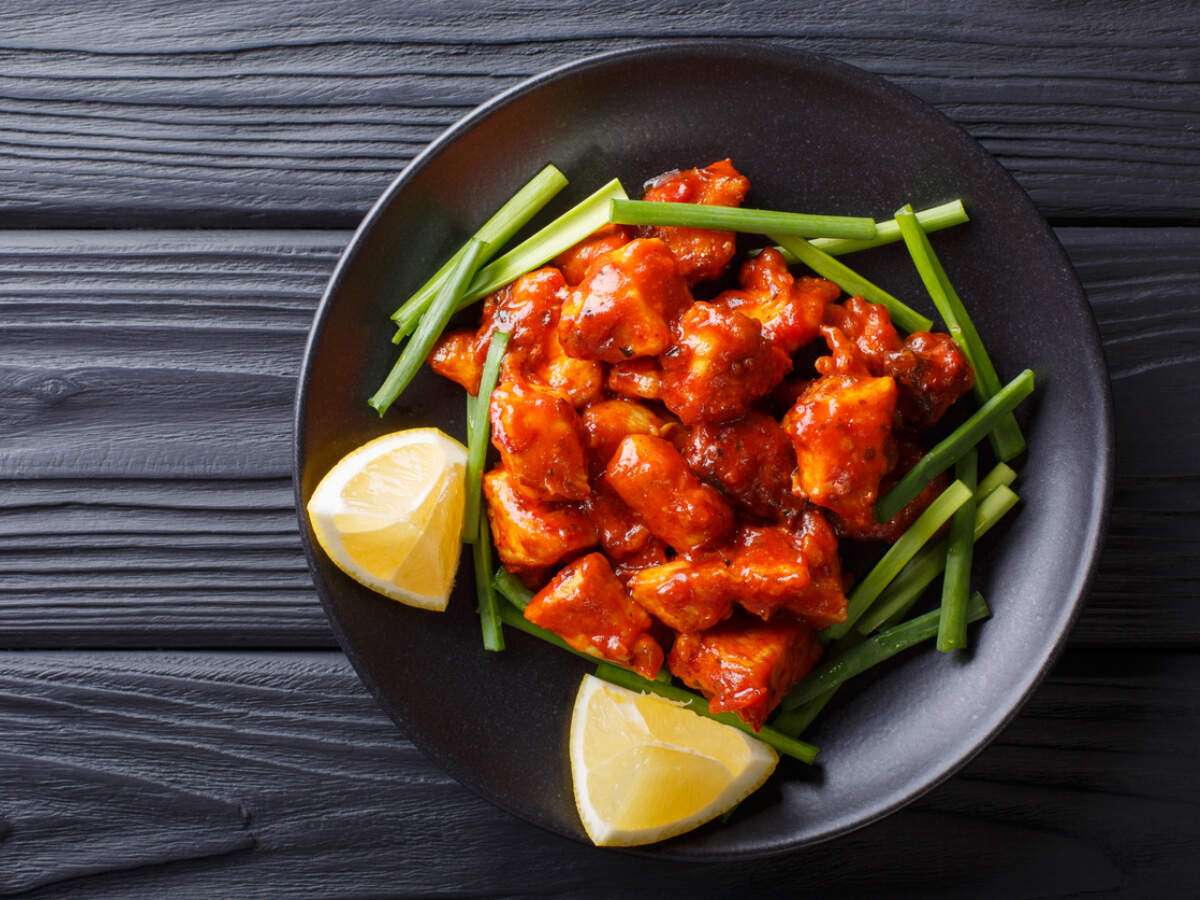Are you curious if adding a little heat to your meals can actually help you shed those extra pounds? Many people wonder if spicy food is more than just a flavor boost—could it be a secret weapon for weight loss?
Imagine enjoying your favorite spicy dishes while speeding up your metabolism and burning calories more efficiently. You’ll discover the surprising ways spicy foods might support your weight loss goals and learn how to use them smartly in your diet. Keep reading to find out if that spicy kick is really worth it for your body and your waistline.
Spicy Food And Metabolism
Eating spicy food can affect your metabolism. Some spices may help your body burn calories faster.
People often wonder if spicy food helps with weight loss. The key is how certain compounds in spices work.
How Capsaicin Affects Calorie Burn
Capsaicin is the compound that makes chili peppers hot. It can increase the number of calories your body burns.
This happens because capsaicin raises your heart rate and body temperature. Both use more energy from calories.
- Capsaicin boosts calorie burning after meals
- It may reduce appetite and food intake
- Effects are small but can add up over time
Thermogenic Effects Explained
Thermogenesis means making heat in the body. Spicy food can cause this heat production.
When your body produces heat, it burns calories faster. This helps increase metabolism a little.
- Thermogenic effect raises body temperature
- Body uses more energy to cool down
- This process helps burn fat and calories
Appetite And Food Intake
Eating spicy food may affect how hungry you feel. Some people say spicy meals help them eat less.
Understanding how spicy food influences appetite and food intake can help with weight management.
Spicy Food’s Role In Appetite Suppression
Spicy foods contain a compound called capsaicin. It can lower hunger by affecting signals in the body.
Capsaicin might reduce the desire to eat soon after a spicy meal. This helps some people eat less overall.
Impact On Portion Control
Spicy foods can help control portion sizes by making food feel more satisfying. This may reduce overeating.
When meals taste spicy, people often eat slower and enjoy smaller amounts. This helps manage calorie intake.
Fat Oxidation And Storage
Eating spicy food may affect how your body handles fat. It can change the way fat is burned or stored.
Spicy foods often contain capsaicin, a compound that may influence fat metabolism.
Influence On Fat Breakdown
Capsaicin can increase fat oxidation, which means your body burns more fat for energy. This helps reduce fat stores in the body.
Spicy food may also raise your metabolism, leading to more calories burned throughout the day.
- Boosts fat burning after meals
- Increases energy use at rest
- Helps break down stored fat faster
Effect On Fat Accumulation
Spicy food might reduce fat storage by lowering the amount of fat your body keeps. It can limit the growth of fat cells.
Capsaicin may also help control appetite, which can reduce overeating and fat gain.
- Prevents new fat cell growth
- Reduces fat buildup in tissues
- Helps control hunger signals

Scientific Studies And Findings
Spicy food often contains capsaicin, a compound that may influence weight loss. Scientists have studied how eating spicy food affects metabolism and fat burning.
This article looks at scientific research on spicy food and its impact on weight. We explore human trials and animal studies to understand the effects.
Human Trials On Spicy Food And Weight
Many human studies tested if spicy food helps with weight loss. Some trials found that capsaicin can increase metabolism slightly. This means the body burns more calories after eating spicy meals.
Other research showed that spicy food may reduce appetite. People eating spicy meals sometimes eat less later. This can help lower calorie intake and support weight control.
- Capsaicin raises body temperature, boosting calorie burning
- Spicy food may reduce hunger and food intake
- Effects vary between people and are usually small
- Long-term weight loss from spicy food alone is unclear
Animal Research Insights
Animal studies help explain how capsaicin affects fat and metabolism. Some studies on mice show capsaicin can reduce fat accumulation. It may also increase energy use in fat cells.
Animals given capsaicin sometimes ate less and lost weight. These results suggest capsaicin affects hunger and energy balance. Still, animal results do not always apply to humans.
- Capsaicin may activate fat-burning pathways in animals
- It can reduce fat storage in some animal models
- Capsaicin lowers appetite and food intake in animals
- More research is needed to confirm effects in humans
Potential Risks And Considerations
Eating spicy food is popular for many reasons, including its possible effect on weight loss. Still, spicy foods can cause some problems for certain people. It is important to think about the risks before adding a lot of spice to your diet.
Spicy foods may not be safe or comfortable for everyone. Some people may face stomach problems or other issues. Understanding these risks helps you make better choices for your health.
Digestive Issues
Spicy foods can irritate the stomach lining. This irritation might cause pain or discomfort. Some people may get heartburn or acid reflux after eating spicy meals.
Eating too much spicy food can lead to upset stomach, diarrhea, or gas. People with sensitive stomachs or digestive problems should be careful with spicy foods.
- May cause stomach pain or burning
- Can lead to heartburn and acid reflux
- Possible diarrhea or gas after eating
- Not recommended for people with ulcers or gastritis
Tolerance And Sensitivity
Not everyone reacts the same way to spicy food. Some people can eat very spicy dishes with no problems. Others may feel pain or discomfort even with mild spice.
People new to spicy food should start with small amounts. This helps the body adjust and lowers the chance of a bad reaction. If you feel burning, itching, or swelling, stop eating and seek advice.
- Spice tolerance varies by person
- Start with small amounts if new to spicy food
- Watch for signs of allergic reaction or discomfort
- Stop eating if you feel pain or swelling

Incorporating Spicy Food Safely
Eating spicy food may help with weight loss by boosting metabolism. It can also reduce appetite and increase fat burning.
It is important to add spices carefully to avoid stomach problems. Start with small amounts and notice how your body reacts.
Best Spices For Weight Management
Some spices can support weight management better than others. They may increase metabolism and reduce hunger.
- Capsaicin from chili peppers raises calorie burning
- Cinnamon helps control blood sugar levels
- Ginger can improve digestion and reduce inflammation
- Turmeric contains curcumin that may support fat loss
Balancing Spice With Nutrition
Spices work best when combined with healthy foods. Avoid eating too much spicy food on an empty stomach.
Include vegetables, lean proteins, and whole grains with your spicy meals. Drink water to stay hydrated and protect your stomach.

Frequently Asked Questions
Does Spicy Food Boost Metabolism For Weight Loss?
Yes, spicy food can temporarily increase metabolism. Capsaicin in chili peppers raises body heat and calorie burning, aiding weight loss.
Can Eating Spicy Food Reduce Appetite?
Spicy foods may help reduce appetite. Capsaicin can decrease hunger and increase fullness, leading to lower calorie intake.
Is Spicy Food Effective For Fat Burning?
Spicy food supports fat burning by enhancing thermogenesis. It helps your body burn more calories, especially after meals.
Are There Risks Of Eating Spicy Food For Weight Loss?
Excessive spicy food may cause digestive discomfort or heartburn. Moderation is key for safe weight loss benefits.
Conclusion
Spicy food might help with weight loss, but it’s not magic. Capsaicin can boost metabolism slightly. It may help burn more calories. But, it’s no substitute for a balanced diet and exercise. Eating spicy foods can also add flavor. This might reduce cravings for unhealthy snacks.
Listen to your body. Not everyone handles spicy food well. Moderation is key. Combine spicy meals with healthy habits. This could support your weight loss journey. Always consult a doctor for personalized advice. Stay informed and make choices that suit you.


